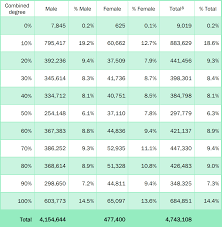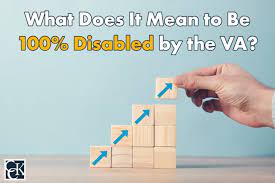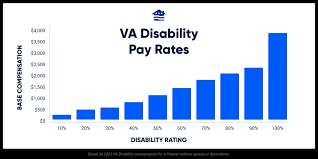Title: Exploring 100 Disabled Veteran Benefits: A Comprehensive Guide
Introduction:
As a nation, we owe a tremendous debt of gratitude to our disabled veterans who have sacrificed so much in service to our country. In recognition of their sacrifices, the United States offers a wide range of benefits and support programs to assist disabled veterans and their families. In this article, we will explore 100 disabled veteran benefits, highlighting the key areas where assistance is available.
Disability Compensation:
Disabled veterans may be eligible for disability compensation, which provides monthly financial support based on the severity of their service-connected disabilities.
Health Care:
The Department of Veterans Affairs (VA) provides comprehensive health care services to disabled veterans, including medical treatment, mental health care, and specialized rehabilitation programs.
Vocational Rehabilitation and Employment (VR&E):
Through VR&E services, disabled veterans can receive assistance with job training, resume building, and job placement to enhance their employment prospects.
Education and Training:
The GI Bill offers educational benefits for disabled veterans, covering tuition fees, housing allowances, and book stipends for pursuing higher education or vocational training.
Home Loans:
Disabled veterans may qualify for VA-backed home loans with favorable terms such as low-interest rates and no down payment requirements.
Adapted Housing Grants:
Veterans with service-connected disabilities that limit their mobility can apply for grants to modify their homes for accessibility needs.
Automobile Allowance and Adaptive Equipment:
Financial assistance is available for disabled veterans who require specialized vehicles or adaptive equipment due to service-related disabilities.
Clothing Allowance:
Veterans with certain disabilities that necessitate the use of prosthetic or orthopedic appliances may receive an annual clothing allowance to offset the cost of maintaining these items.
Special Monthly Compensation (SMC):
SMC provides additional financial support to disabled veterans who have severe disabilities or require aid from another person due to their conditions.
Dependents and Survivors Benefits:
Disabled veterans’ dependents and survivors may be eligible for various benefits, including education assistance, health care coverage, and survivor pensions.
Conclusion:
The 100 disabled veteran benefits mentioned in this article represent just a fraction of the support available to those who have served our country and incurred disabilities as a result. It is crucial for disabled veterans to explore all the resources and programs offered by the VA to ensure they receive the assistance they deserve. If you are a disabled veteran or know someone who is, we encourage you to reach out to the Department of Veterans Affairs or visit their official website for more information on these benefits and how to apply. Let us honor our disabled veterans by ensuring they receive the support they need to lead fulfilling lives after their service.
Frequently Asked Questions: 8 Key Benefits and Programs for Disabled Veterans
- What benefits are available for disabled veterans?
- How do I apply for disability benefits?
- How long does it take to receive disability benefits?
- What types of financial assistance are available for disabled veterans?
- Are there any special programs or services for disabled veterans?
- Is there a limit on how much money a veteran can receive in disability payments?
- What documents do I need to provide to apply for disabled veteran benefits?
- Are there any tax breaks or other incentives available to disabled veterans?
What benefits are available for disabled veterans?
Disabled veterans are eligible for a wide range of benefits and support programs. Here are some key benefits available to disabled veterans:
- Disability Compensation: Disabled veterans may receive monthly financial compensation based on the severity of their service-connected disabilities.
- Health Care: The Department of Veterans Affairs (VA) provides comprehensive health care services, including medical treatment, mental health care, and specialized rehabilitation programs.
- Vocational Rehabilitation and Employment (VR&E): Disabled veterans can receive assistance with job training, resume building, and job placement to enhance their employment prospects.
- Education and Training: The GI Bill offers educational benefits, covering tuition fees, housing allowances, and book stipends for pursuing higher education or vocational training.
- Home Loans: Disabled veterans may qualify for VA-backed home loans with favorable terms such as low-interest rates and no down payment requirements.
- Adapted Housing Grants: Veterans with service-connected disabilities that limit their mobility can apply for grants to modify their homes for accessibility needs.
- Automobile Allowance and Adaptive Equipment: Financial assistance is available for disabled veterans who require specialized vehicles or adaptive equipment due to service-related disabilities.
- Clothing Allowance: Veterans with certain disabilities that necessitate the use of prosthetic or orthopedic appliances may receive an annual clothing allowance to offset the cost of maintaining these items.
- Special Monthly Compensation (SMC): SMC provides additional financial support to disabled veterans who have severe disabilities or require aid from another person due to their conditions.
- Dependents and Survivors Benefits: Disabled veterans’ dependents and survivors may be eligible for various benefits, including education assistance, health care coverage, and survivor pensions.
It’s important to note that this list is not exhaustive, as there are numerous other benefits available depending on individual circumstances. Disabled veterans are encouraged to contact the VA or visit their official website to explore all the resources and programs available to them.
How do I apply for disability benefits?
Applying for disability benefits can be a complex process, but the following steps will guide you through the application process:
- Gather necessary documents: Collect all relevant documentation, including your military service records, medical records, and any supporting evidence of your disabilities. This may include doctor’s reports, test results, and statements from witnesses.
- Determine eligibility: Visit the official website of the Department of Veterans Affairs (VA) to review the eligibility criteria for disability benefits. Ensure that you meet the requirements before proceeding with the application.
- Fill out the application form: Obtain and complete VA Form 21-526EZ, which is the Application for Disability Compensation and Related Compensation Benefits. You can download this form from the VA’s website or request a copy by calling their toll-free number.
- Submit your application: Once you have filled out the application form, submit it to the VA along with all supporting documents that demonstrate your service-connected disabilities. It is advisable to make copies of all documents for your records.
- Attend medical evaluations: In some cases, the VA may require you to undergo medical evaluations to assess your disabilities further. Cooperate fully with these evaluations and provide any requested information promptly.
- Await a decision: The VA will review your application along with all supporting evidence provided and make a decision regarding your eligibility for disability benefits. This process may take several months due to high caseloads.
- Appeal if necessary: If your initial claim is denied or if you believe that an incorrect decision was made, you have the right to appeal within a specified timeframe. Consult with a veterans service organization or an attorney specializing in veterans’ benefits to assist you in this process.
It is important to note that applying for disability benefits can be overwhelming at times due to its complexity and potential delays in processing times. Seeking assistance from veterans service organizations or legal professionals who specialize in veterans’ benefits can provide valuable guidance throughout this process.
How long does it take to receive disability benefits?
The time it takes to receive disability benefits can vary depending on several factors. The processing time for disability benefits can be influenced by the complexity of the case, the completeness of the application, and the workload of the agency responsible for reviewing and approving claims. Here are some general guidelines:
- Initial Application: After submitting your initial application for disability benefits, it typically takes around three to five months to receive a decision from the Social Security Administration (SSA). However, it’s important to note that this timeframe can vary significantly.
- Reconsideration: If your initial application is denied and you decide to request a reconsideration, it may take another three to five months to receive a decision.
- Disability Hearing: If your claim is denied at the reconsideration stage and you request a hearing before an administrative law judge, the waiting time can be longer. On average, it takes about 12-18 months from the date of requesting a hearing to actually have the hearing.
- Appeals Council and Federal Court: If your claim is denied at the hearing level, you have the option to appeal further to the Appeals Council and even file a lawsuit in federal court if necessary. The processing times at these stages can vary significantly and may take several months or even years.
It’s important to keep in mind that these timelines are approximate averages and can differ based on individual circumstances. Additionally, certain expedited processes may exist for specific situations such as terminal illnesses or dire financial need.
To ensure a smoother process, it’s crucial to provide all necessary documentation accurately and completely when applying for disability benefits. Seeking assistance from professionals like attorneys or advocates who specialize in disability claims can also help navigate the process more efficiently.
For specific information about your case or more accurate estimates on processing times, it’s recommended to contact the appropriate agency handling your disability claim directly.
What types of financial assistance are available for disabled veterans?
Disabled veterans have access to various types of financial assistance to help support their needs. Some of the key financial assistance programs available include:
- Disability Compensation: Disabled veterans may be eligible for disability compensation, which provides monthly tax-free payments based on the severity of their service-connected disabilities.
- Pension Benefits: Veterans with limited income and disabilities unrelated to military service may qualify for pension benefits. This program provides regular, tax-free payments to eligible veterans and their surviving spouses.
- Special Monthly Compensation (SMC): SMC is an additional compensation program that provides extra financial support to disabled veterans who have severe disabilities or require assistance from another person due to their conditions.
- Grants for Adapted Housing: Disabled veterans who need modifications to their homes for accessibility can apply for grants through the Specially Adapted Housing (SAH) program or the Special Housing Adaptation (SHA) program. These grants can help cover the costs of necessary home modifications.
- Automobile Allowance and Adaptive Equipment: Financial assistance is available for disabled veterans who require specialized vehicles or adaptive equipment due to service-related disabilities.
- Education and Training Benefits: The GI Bill offers educational benefits, including tuition fee coverage, housing allowances, and book stipends, which can help disabled veterans pursue higher education or vocational training.
- Vocational Rehabilitation and Employment (VR&E): Disabled veterans can receive assistance through VR&E services, which provide job training, resume building, job placement support, and other employment-related resources.
- Home Loans: The Department of Veterans Affairs offers VA-backed home loans with favorable terms such as low-interest rates and no down payment requirements for disabled veterans looking to purchase a home.
- Clothing Allowance: Veterans with certain disabilities that require the use of prosthetic or orthopedic appliances may be eligible for an annual clothing allowance to offset the cost of maintaining these items.
- Dependents and Survivors Benefits: Disabled veterans’ dependents and survivors may be eligible for various financial benefits, including education assistance, health care coverage, and survivor pensions.
It’s important for disabled veterans to explore these programs and consult with the Department of Veterans Affairs (VA) or other relevant organizations to determine their eligibility and apply for the financial assistance they need.
Are there any special programs or services for disabled veterans?
Absolutely! In addition to the general benefits available to disabled veterans, there are several special programs and services specifically designed to address their unique needs. Here are a few examples:
- VA Caregiver Support Program: This program provides assistance and resources to family members or friends who serve as caregivers for disabled veterans. It offers training, respite care, counseling, and financial support.
- Prosthetics and Sensory Aids Service: The VA’s Prosthetics and Sensory Aids Service provides comprehensive support for disabled veterans who require prosthetic limbs, hearing aids, visual aids, or other assistive devices.
- Vocational Rehabilitation and Employment (VR&E) Program: This program helps disabled veterans overcome employment barriers by providing vocational counseling, job training, resume building, and job placement assistance.
- Traumatic Brain Injury (TBI) Programs: The VA offers specialized services for veterans with traumatic brain injuries, including rehabilitation programs, cognitive therapy, assistive technology, and community reintegration support.
- Blind Rehabilitation Services: Veterans with vision loss can access a range of services through the VA’s Blind Rehabilitation Services program. These include low vision clinics, guide dog programs, mobility training, adaptive technology training, and more.
- Mental Health Services: The VA provides comprehensive mental health care for disabled veterans struggling with conditions such as post-traumatic stress disorder (PTSD), depression, anxiety disorders, and substance abuse issues. Services include counseling, therapy sessions, medication management, and support groups.
- Adaptive Sports Programs: Disabled veterans can participate in adaptive sports programs organized by the VA or partner organizations. These programs promote physical activity and provide opportunities for competition in various sports tailored to accommodate disabilities.
These are just a few examples of the many special programs and services available to disabled veterans through the Department of Veterans Affairs (VA). It is important for disabled veterans to connect with their local VA office or visit the official VA website to explore the full range of programs and services that cater to their specific needs.
Is there a limit on how much money a veteran can receive in disability payments?
Yes, there is a limit on how much money a veteran can receive in disability payments. The Department of Veterans Affairs (VA) uses a rating system to determine the severity of a veteran’s service-connected disabilities, which in turn determines the amount of compensation they are eligible to receive.
The VA assigns disability ratings ranging from 0% to 100% in increments of 10%. Each rating corresponds to a specific monthly payment amount. For example, as of 2021, a veteran with a 10% disability rating would receive $144.14 per month, while a veteran with a 100% disability rating would receive $3,146.42 per month.
However, it’s important to note that veterans who have multiple service-connected disabilities may be eligible for additional compensation through Special Monthly Compensation (SMC). SMC provides extra financial support for veterans with severe disabilities or those who require assistance from another person due to their conditions.
It’s worth mentioning that disability payments can be adjusted annually based on cost-of-living adjustments (COLA) determined by the government. These adjustments ensure that disability payments keep pace with inflation and maintain their value over time.
It is recommended that veterans consult with the VA or seek assistance from accredited veterans’ service organizations to understand the specific details regarding disability compensation and any potential changes that may occur over time.
What documents do I need to provide to apply for disabled veteran benefits?
When applying for disabled veteran benefits, you will need to provide certain documents to support your claim. While the specific requirements may vary depending on the benefit you are applying for and your individual circumstances, here are some common documents that may be requested:
- DD-214: This is the Certificate of Release or Discharge from Active Duty. It verifies your military service and provides information about your discharge status.
- Medical Records: You will need to provide medical documentation that supports your disability claim. This can include records from military hospitals, VA medical centers, private physicians, or any other relevant healthcare providers.
- VA Form 21-526EZ: This is the Application for Disability Compensation and Related Compensation Benefits form. It is a key document that captures important details about your disability claim.
- Service Treatment Records: These records contain information about any injuries, illnesses, or disabilities you incurred during your military service.
- Dependency Documents: If you have dependents (spouse, children, etc.) who may qualify for benefits based on your disability status, you may need to provide marriage certificates, birth certificates, adoption papers, or other relevant documentation.
- Financial Information: Some benefits programs consider financial eligibility criteria. You may be required to submit income tax returns, bank statements, and other financial documents to determine your eligibility.
- Social Security Number (SSN): Your SSN will be needed for identification purposes and to link your application with existing records in the VA system.
- Supporting Statements: It can be helpful to provide statements from family members, friends, or colleagues who can attest to the impact of your disability on your daily life and functioning.
It’s important to note that this list is not exhaustive and additional documents may be required based on the specific benefit program you are applying for. To ensure a smooth application process and accurate documentation submission, it is advisable to consult with a Veterans Service Officer (VSO) or contact the Department of Veterans Affairs (VA) for guidance tailored to your circumstances.
Are there any tax breaks or other incentives available to disabled veterans?
Yes, there are tax breaks and other incentives available to disabled veterans in the United States. Here are a few examples:
- Disability Compensation: Disability compensation received from the Department of Veterans Affairs (VA) is generally tax-free. This includes both monthly payments for service-connected disabilities and lump-sum disability severance pay.
- Property Tax Exemptions: Many states offer property tax exemptions for disabled veterans. These exemptions can vary by state but often provide reduced or waived property taxes for qualifying disabled veterans.
- Vehicle Tax Exemptions: Some states offer exemptions or reductions on vehicle registration fees or taxes for disabled veterans who have specially equipped vehicles to accommodate their service-connected disabilities.
- Federal Hiring Preferences: Disabled veterans may receive hiring preferences when applying for federal government jobs through programs like the Veterans’ Preference program, which gives them an advantage in the hiring process.
- Small Business Incentives: The Small Business Administration (SBA) provides assistance and resources to help disabled veterans start and grow their own businesses. This includes access to loans, training programs, and contracting opportunities specifically set aside for veteran-owned businesses.
- Education Grants: Disabled veterans may be eligible for educational grants through various programs, such as the Vocational Rehabilitation and Employment (VR&E) program, which provides financial assistance for education and training to enhance employment prospects.
- Social Security Disability Benefits: Disabled veterans who are unable to work due to severe disabilities may be eligible for Social Security Disability Insurance (SSDI) benefits from the Social Security Administration (SSA).
It’s important to note that these benefits and incentives can vary depending on factors such as disability rating, service-connected status, and individual state regulations. It is recommended that disabled veterans consult with a VA representative or a knowledgeable tax professional to understand the specific benefits available to them based on their circumstances.




